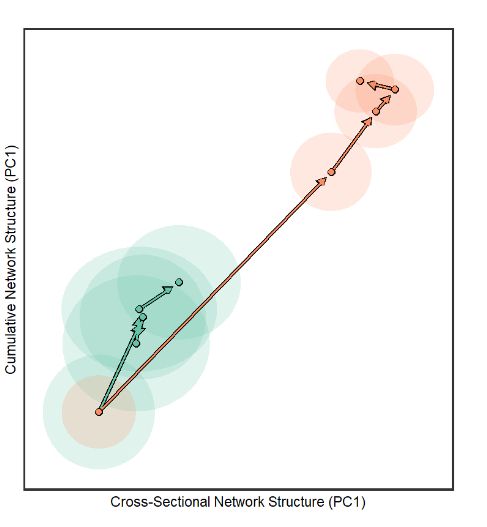
Sure, they probably used the same texts, but I don't see this as a problem.
Sure, they probably used the same texts, but I don't see this as a problem.
Preprint here:
Moser, C. J., Ortega, A., & Marghetis, T. (2025). The network science of philosophy.
osf.io/ep3ub_v1
Preprint here:
Moser, C. J., Ortega, A., & Marghetis, T. (2025). The network science of philosophy.
osf.io/ep3ub_v1


What sets vital communities apart is not amount of disagreement, but its organization. In vital periods, disagreement is restructured into productive and generative conversation.

What sets vital communities apart is not amount of disagreement, but its organization. In vital periods, disagreement is restructured into productive and generative conversation.







